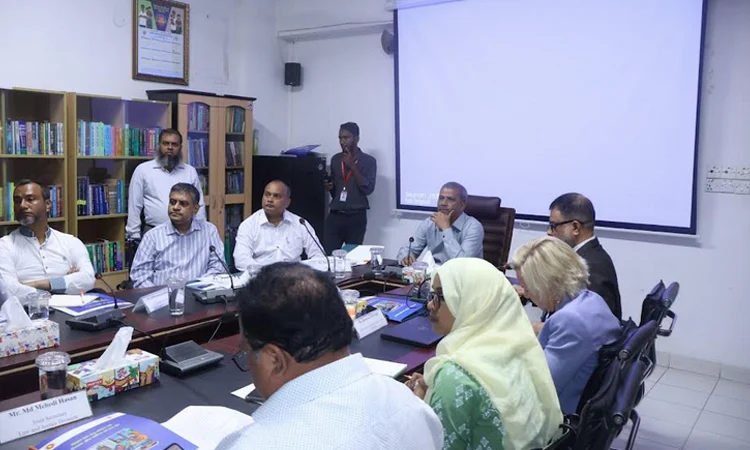News Flash

DHAKA, June 14, 2025 (BSS) - Law, Justice and Parliamentary Affairs Adviser Dr Asif Nazrul today said making alternative dispute resolution (ADR) methods mandatory is essential to address the persistent and overwhelming backlog of cases.
The ministry is taking prompt and decisive steps to implement this initiative, he said.
He made this remark while presiding over a view-exchange meeting organized on the draft of the Legal Aid Act (Amendment) Ordinance 2025 at the conference room of the National Legal Aid Services Organization (NLASO) in the capital's Bailey Road.
Asif Nazrul, also the chairman of the National Governing Board of the NLASO, said the abnormal pressure of cases in the courts not only questions the judicial structure but also the possibility of getting justice.
Mentioning that reducing the pressure of new cases is the need of time, he said that to reduce this pressure, more importance should be given to ADR methods. Therefore, it is important to make the mediation and settlement mandatory before filing a case, he added.
The adviser said that out of the approximately 500,000 cases filed in the courts of Bangladesh every year, only 35,000 cases are resolved through the government legal aid service. Disputes are resolved in legal aid offices with full satisfaction of the parties in 90 percent of the cases, taking only one-tenth of the time required in the court to dispose of a case, he observed.
If the government legal aid program can be further expanded, made more efficient, and institutionally strengthened, the number of cases resolved through mediation could be increased to 100,000-200,000, he said, adding, achieving this could reduce the number of case filings by 40 percent.
Asif Nazrul mentioned that from the beginning, they have set three targets for the reform process on behalf of the ministry. The first of these is to resolve cases quickly and in the shortest possible time at low cost. "To this end, we have made a very important change and that is the change in the Civil Procedure Code."
Along with this, the ministry is taking the work of amending the Criminal Procedure Code forward quickly, and expecting to pass it as a law within the next month.
He said, "Our second goal is to ensure justice, and to that end, we are considering digitalization."
He continued that they are also planning high-level training for judges and exploring ways to enhance their accountability. "We have collected asset declarations from all those working in the judiciary or legal sector, and we will work with that data in the future. Additionally, we are collaborating with lawyers to ensure justice," he said.
The Adviser went on saying, "Our third goal is to free people from the curse of prolonged litigation. To achieve this, we are working to amend the relevant laws under the NLASO."
The draft of the "Legal Aid Act (Amendment) Ordinance, 2025" was presented by the NLASO in the meeting.
The proposed amendment suggests bringing negotiable and minor family, civil, criminal, and cheque-related cases under mandatory pre-litigation mediation.
As a result, parties involved in such cases must first attempt mediation through the District Legal Aid Office before filing a case in court.
In addition, the proposal highlights the need to enhance the capacity and manpower of District Legal Aid Offices, to include retired district judges and experienced lawyers in a special panel of mediators, and to amend the Legal Aid Services Act, 2000 and the Legal Aid (Legal Advice and Alternative Dispute Resolution) Rules, 2015, along with other relevant regulations, to make mediation services more effective, efficient, and people-friendly.
Officials concerned of the ministry, the director and other officials of the NLASO, the Legal Aid Officer of Dhaka District, the Presidents and General Secretaries of the Bar Associations of Dhaka, Chattogram, Narayanganj and Cumilla districts, representatives of UNDP Bangladesh, GIZ Bangladesh, ILO, Madaripur Legal Aid Association, BLAST, BRAC and Proshika took part in the meeting.
The participants in the meeting engaged in constructive discussion on various aspects of the proposed amendments and provided various suggestions.
The Adviser asked them to send their recommendations and suggestions in writing to the ministry within the next three working days.